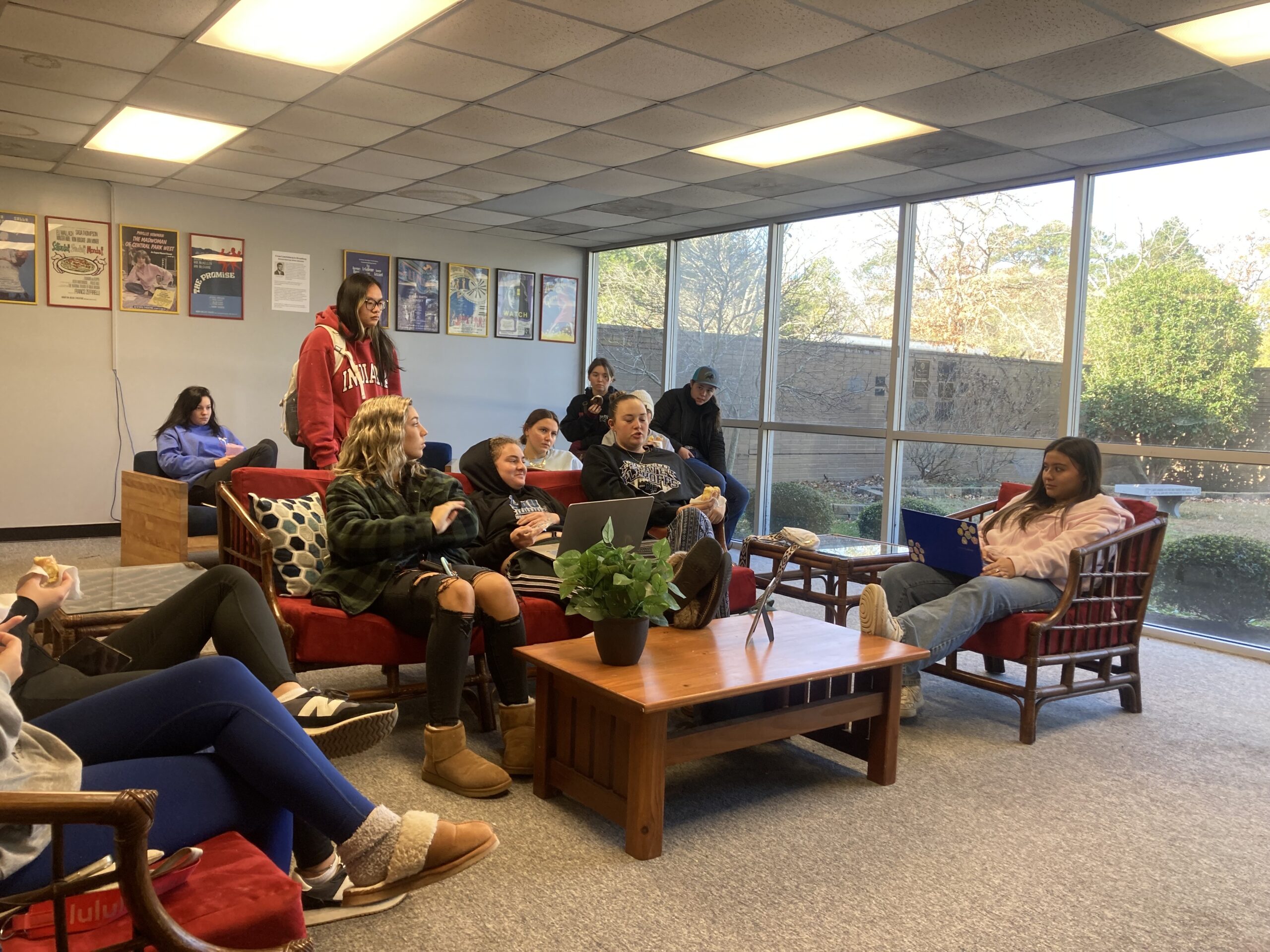A liberal arts education doesn’t teach students what to think; it teaches students how to think. This principle has guided my efforts to update the General Honors curriculum. When it came time to revise SAGE 125 HN, the first-year experience course taken by new and transfer Honors students, I set out to ensure that the very beginning of students’ SAU journeys would establish a strong foundation for critical thinking.
Like the Junior Honors course I recently updated, SAGE 125 HN will now offer students an interdisciplinary seminar that examines cutting-edge topics drawn from the scholarly expertise of Honors faculty. I’m currently teaching a “Humanities” section of the course. As the Honors program expands, faculty from the Department of Natural Sciences may be called upon to teach a “Science and Society” section as well.
My Humanities section focuses on the topic of “Narrative Truths.” Addressing big-picture questions like “what constitutes truth?” and “how do stories shape our experience of reality?”, the course explores how knowledge is produced or distorted within multiple intellectual domains, including history, mathematics, the natural sciences, literature, politics, and news media.
Throughout the semester, my students and I engage with the interplay between “truth” and “narrative” in these fields of inquiry. We discuss, for instance, how historical narratives construct truths about the past through a combination of primary sources and the different research questions that get asked of them. We study patterns of science-denial that distort public understanding of environmental and health concerns, undermining the truth about human impacts on the biosphere. We assess how sophisticated algorithms create harmful narratives about our lives, preferences, and behaviors that are accepted as truth due to the perceived credibility of mathematics. We examine conspiracy theories ranging from UFOs to the anti-vaxx movement to determine what deeper truths about our social and political structures these narratives indirectly reveal. And we consider how journalism that embraces a subjective point-of-view may be better equipped to tell the truth about contemporary events than news organizations that prioritize “objectivity” and impartiality.
The scope of this material, the fundamental questions about living and knowing that the class takes up, and the skeptical habits of mind it fosters are all geared toward developing students’ capacity for critical analysis. By refining this crucial skill, students prepare for the kinds of academic inquiry expected of Honors scholars. Through the lens of “Narrative Truths,” they also acquire an important framework for making sense of their place within a complex, multicultural society. As students progress through the Honors program, courses like this one deepen their awareness of the world around them—and how they contribute to it.
Dr. Justin Kuhn is Director of the General Honors Program and Assistant Professor of English at St. Andrews University.
